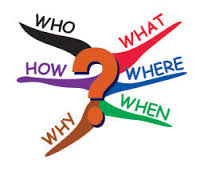The Power of Quotes (Words)
Communication is a social skill that is integral to the existence of any individual. How we communicate is in part, determined by the bank of knowledge, in this case, the depth of vocabulary that we have. Is the point to use language that is above another's capacity to understand? Absolutely not. However, there is a certain power in the words one chooses articulate his or her intentions. There is power in what you say. In fact, there is power in saying what someone else has said.
One of the key pieces of my classroom is writing, one form of communication that I practice and dialogue with students about all year. Though sometimes it is considered a cumbersome task by students, it  is a necessary life skill, to be able to write, and for a variety of purposes. Expository or nonfiction writing is writing that reflects what has happened, or might explain the rationale or history or reason(s) for something occurring. Therefore, it is necessary to learn how to explain and elaborate. Also, since this is not a narrative form, often lacking the flair of figurative language, it is necessary for the writer to develop this form of writing as well, and using quotes is a great and powerful way to do so.
is a necessary life skill, to be able to write, and for a variety of purposes. Expository or nonfiction writing is writing that reflects what has happened, or might explain the rationale or history or reason(s) for something occurring. Therefore, it is necessary to learn how to explain and elaborate. Also, since this is not a narrative form, often lacking the flair of figurative language, it is necessary for the writer to develop this form of writing as well, and using quotes is a great and powerful way to do so.
Dissecting quotes and understanding the meaning behind them aids students in determining whether a quote might be relevant in writing and how it can be used to engage the reader and/or listener and solidify the intended message. Consider the quote below.
"Words are like paint in which the writer becomes the artist and creates a masterpiece.” – Dene Gainey
In that quote, words are being compared to paint, and metaphorically, writing is being compared to artwork. In this way, the writer can now form an explanation to support how this statement applies to his or her writing, furthering the explanation and engaging the audience, prompting them to think as they read. Quotes are powerful and modeling this power for students will enable them to not only notice the power of quotes (words) but begin to manipulate words themselves.
